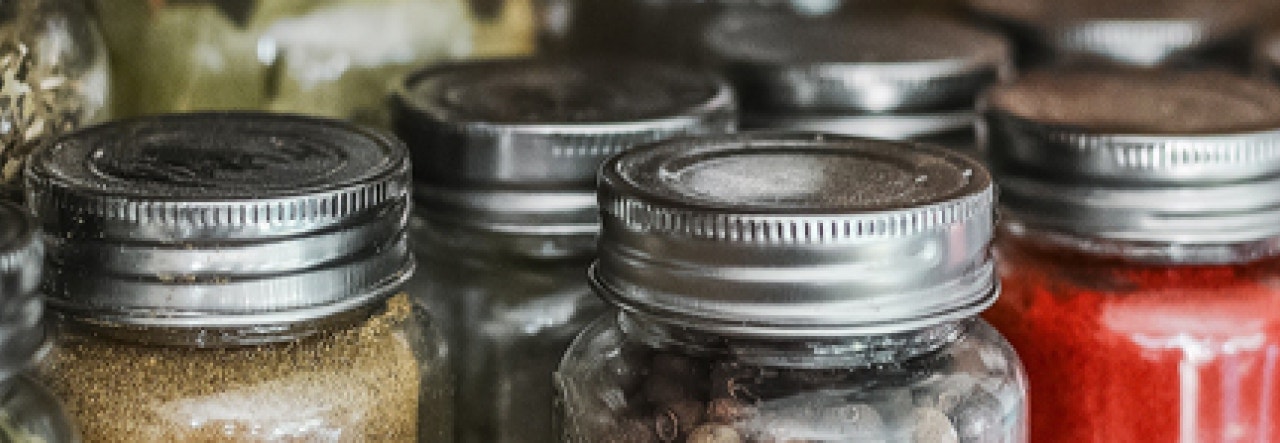
Welcome to the fourth and final week of our Organic Challenge! This week, we’re focusing on some household item transitions that will dramatically cut down your exposure to toxic chemicals. Many of the chemicals found in the average home have been linked to allergies, birth defects, cancer, and psychological abnormalities. Just like the other Organic Challenge products, many of the chemicals listed below have never been adequately tested for negative health effects. For example, products that kill 50% of lab animals through ingestion or inhalation can still be designated "non-toxic."
The average home today contains 62 toxic chemicals. This is more than a chemistry lab at the turn of the century. We’re here to help you start removing these toxins from your home. Here are our 5 non-negotiable items to trade out to get you moving towards a healthier lifestyle.
1. Cookware
Companies that sell cookware are notorious for marketing themselves as “safe” or “clean” when they aren’t. Cookware is a concern because of the xenoestrogens that conventional pots and pans may contain. Xenoestrogens are chemicals that mimic estrogen in the body, which can mess with your hormone levels, interfere with cell growth and repair, energy production, estrogen dominance, thyroid function, reproduction, and fetal development. Xenoestrogens that you need to be aware of are: Bisphenol, Phthalates, Perfluorooctanoic acid, and Metalloestrogens. These chemicals are usually found in cookware coatings and non-stick solutions. It is best to choose cookware that are free of these chemicals so they are not being transferred to the food that you are putting in your body.
2. Water Bottles
Plastic water bottles contain hormone disrupting chemicals like BPA and Phthalates that have been shown to cause hormone imbalance in the body. They have also been linked to various types of cancers, obesity, miscarriage, infertility, and neurological disorders. Phthalates have been banned in many parts of the world, but still exist in many of our day to day products. Plastic water bottles don’t only have harmful health side effects, but have a large impact on the health of our planet. So much plastic is dumped into the ocean each year that the chemicals are being absorbed by marine life and, eventually, will work their way up the food chain. Switching to reusable, non-plastic water bottles can do a lot for our health and the planet.
3. Food Storage Containers
Similar to plastic water bottles, plastic food storage containers consist of BPA, a type of polycarbonate, endocrine disruptors, and other potentially carcinogenic chemicals. Although the FDA banned the use of BPA in baby bottles (citing harm to the brain and reproductive development), they still maintain that it is safe for food storage and packaging. Organizations, like the Institute for Agriculture and Trade Policy and the Environmental Working Group, continue to disagree. Scientists no longer ask if toxic substances migrate from plastic to food during microwave heating, they ask how much toxins migrate. A study has come out that BPA-Free plastic containers may be just as hazardous as before. Glass containers are a safer option for food storage. Just make sure to find brands that are made in the United States because some glass that is imported from China has been shown to contain lead or cadmium.
4. Cotton Balls
Cotton is the world’s most chemically treated crop, and conventional cotton balls contain traces of harmful residues from pesticides, synthetic fertilizers, dioxins, and other chemicals. Non-organic, industrial cotton farms are responsible for using one-fourth, a full 25%, of pesticides worldwide. Viscose is often found in conventional cotton balls and is extremely harmful to the environment and air quality. The synthetic materials used in conventional cotton balls have also been known to irritate the skin, cause rashes, and other allergic reactions. Organic cotton balls are pesticide free and they’re disinfected with hydrogen peroxide so there is no dioxin leftover in the fibers. Make sure that you buy certified organic cotton balls to ensure that they are free of harmful chemicals.
5. Mattress & Bedding
You will spend ⅓ of your life in bed. Your body uses sleep to rejuvenate and heal, as well as fight disease and maintain balance with its surroundings. Conventional mattresses contain a plethora of chemicals that are harmful to your health and the health of your family. Since many conventional mattresses are made with polyurethane foam that is highly flammable, they require toxic chemical flame retardants to meet the United States flammability standards. Toxic flame retardant exposure builds up in the body and has been linked to cancer, endocrine disruption, cardiovascular disease, cognitive delays, and decreased fertility.
Children and babies are especially susceptible due to their still-developing bodies and endocrine system. The growing concern among physicians, health professionals, public safety officials, and environmental advocacy groups is the effect these chemicals have on our children. Many researchers believe that toxic chemicals are playing a significant role in the dramatic increase in childhood disorders. Naturepedic mattresses are certified organic to the strictest standards available. They are certified by the Global Organic Textile Standard (GOTS), Global Organic Latex Standard (GOLS), MADE SAFE, GreenGuard, and more. We use certified organic cotton and certified organic wool, which are natural flame barriers and pass all state flammability tests without the use of harsh flame retardant chemicals.
We always recommend doing ample research when purchasing products to make sure they are what they say they are, especially when it comes to products that claim organic, nontoxic, eco-friendly, or green. All of the products discussed during our organic challenge are at the tip of the iceberg, and we recommend delving into each area of your life and home more to discover what could be negatively affecting your health.
If you would like to learn more about our organic challenge, click here.
 BABY
BABY  KIDS
KIDS  ADULT
ADULT  LEARN
LEARN  STORES
STORES 